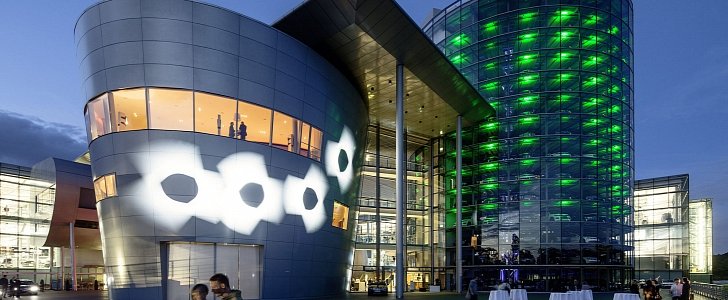Unless you’ve been living completely off the grid these past few months, you’ve surely heard about the Volkswagen emissions scandal affecting most of the brand’s diesel engines.
Naturally, this whole fiasco is going to cost the once number one company in the automotive world a lot of money. Nobody knows exactly how much, but figures quoting lots of billions of dollars have been used.
Heads have already fallen, and now new CEO Matthias Müller is tasked with finding ways to cut costs without making the company seem desperate, and thus lose even more credibility.
Let’s switch planes a little and talk about the Volkswagen Phaeton, the model that was supposed to be the brand’s flagship but instead turned into a huge financial sinkhole that didn’t at least provide the intended image boost either, proving once again that one company can’t be both premium and mainstream at the same time.
To put things into perspective, a global asset management firm called Sandford C. Bernstein made a list of ten of the most unprofitable vehicles in Europe, and the Phaeton came in third with an estimated loss of $2.9 billion. And that was in 2013.
The Phaeton was introduced in 2002, at the same time the Transparent Factory (Gläserne Manufaktur) began production. The Phaeton was conceived as a vehicle to lift Volkswagen’s status among the elite of German manufacturers where Audi, BMW and Mercedes-Benz already operated. In doing so, the company’s leaders believed it also needed a special production facility.
Most of the Phaeton parts were largely pre-assembled elsewhere, with a very good example being the bodies that came already painted from Zwickau, some 100 kilometers away from Dresden. The Transparent Factory was mostly an act, an opportunity to show off the company’s wealth and innovation to the public.
Add these two aspects together now - the Dresden factory’s opulence and Phaeton’s disastrous lack of profitability - and Matthias Müller’s decision to shut down the plant makes a lot of sense given the situation.
According to Wirtschafts Woche (Business Weekly), the fate of the iconic factory will be discussed in an upcoming board meeting, but the outcome seems unclear. Müller will have its opponents at that meeting, with VW’s union representatives - who hold half the board seats - most likely to vote against it.
If it does go through, the Phaeton will continue production in another plant that builds similar Audi or Porsche models. A new Phaeton has been confirmed, but no sooner than 2020 when it will come as an all-electric sedan, so the Phaeton name could face a short production hiatus in the upcoming years.
Heads have already fallen, and now new CEO Matthias Müller is tasked with finding ways to cut costs without making the company seem desperate, and thus lose even more credibility.
Let’s switch planes a little and talk about the Volkswagen Phaeton, the model that was supposed to be the brand’s flagship but instead turned into a huge financial sinkhole that didn’t at least provide the intended image boost either, proving once again that one company can’t be both premium and mainstream at the same time.
To put things into perspective, a global asset management firm called Sandford C. Bernstein made a list of ten of the most unprofitable vehicles in Europe, and the Phaeton came in third with an estimated loss of $2.9 billion. And that was in 2013.
The Phaeton was introduced in 2002, at the same time the Transparent Factory (Gläserne Manufaktur) began production. The Phaeton was conceived as a vehicle to lift Volkswagen’s status among the elite of German manufacturers where Audi, BMW and Mercedes-Benz already operated. In doing so, the company’s leaders believed it also needed a special production facility.
Most of the Phaeton parts were largely pre-assembled elsewhere, with a very good example being the bodies that came already painted from Zwickau, some 100 kilometers away from Dresden. The Transparent Factory was mostly an act, an opportunity to show off the company’s wealth and innovation to the public.
Add these two aspects together now - the Dresden factory’s opulence and Phaeton’s disastrous lack of profitability - and Matthias Müller’s decision to shut down the plant makes a lot of sense given the situation.
According to Wirtschafts Woche (Business Weekly), the fate of the iconic factory will be discussed in an upcoming board meeting, but the outcome seems unclear. Müller will have its opponents at that meeting, with VW’s union representatives - who hold half the board seats - most likely to vote against it.
If it does go through, the Phaeton will continue production in another plant that builds similar Audi or Porsche models. A new Phaeton has been confirmed, but no sooner than 2020 when it will come as an all-electric sedan, so the Phaeton name could face a short production hiatus in the upcoming years.

